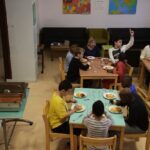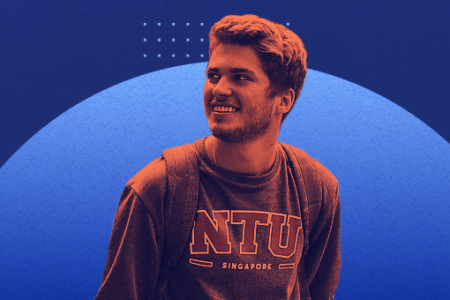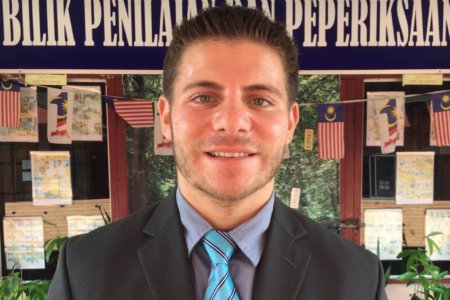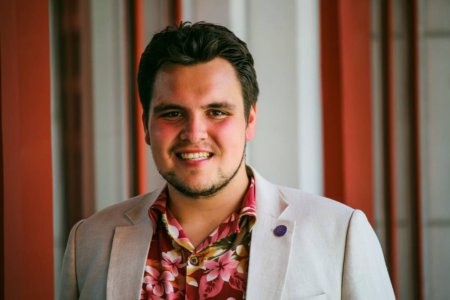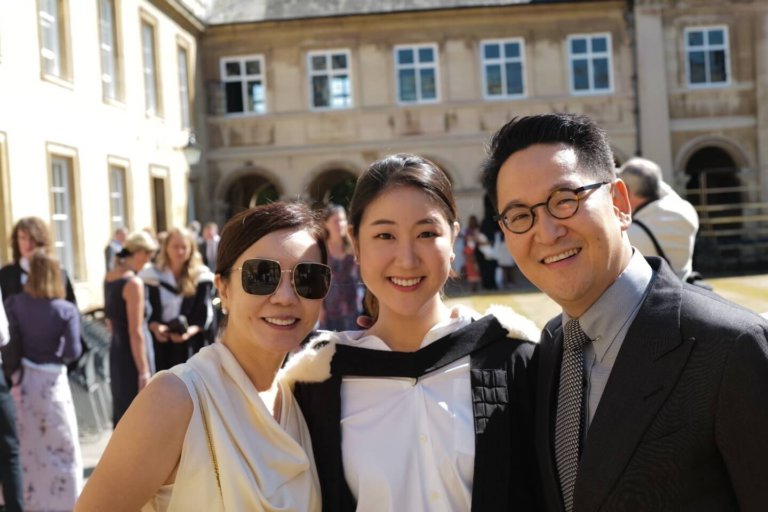
Jacqui Cho hails from South Korea but grew up in the UK and studied at the University of Cambridge. These days, the Master of Philosophy (African Studies) graduate is in Nairobi, working as a Humanitarian Affairs Officer with the UN Office.
The cornerstone of her time was spent trying to create opportunities for students from areas of conflict to gain entry into some of the most elite universities in the world, including her own. In 2017, she co-founded the Cambridge Refugee Scholarship Campaign, aiming to implement a sustainable system of scholarships for refugees and other individuals affected by political and/or humanitarian crises to study at the University of Cambridge.
The campaign was a success. The Rowan Williams Cambridge Studentship now annually supports 10 students who have faced severe educational barriers due to conflict, instability and other political and humanitarian reasons. She now frequently speaks to students across the UK and the US who are keen to run similar campaigns.
Jacqui Cho feels that her career has taken many unexpected turns, but she feels grateful for all the new people, interests and passions she’s discovered along the way. “Uncertainty comes with both anxiety and excitement,” she says with regards to studying and living abroad.
Now in her mid-twenties, Jacqui Cho would like to work in a conflict-affected context supporting communities in transition as part of her long-term career plan. We sit down with Jacqui Cho to speak more in depth about her inspirational life starting with her studies at the University of Cambridge:
Why did you choose to pursue your course at the University of Cambridge?
When I was applying to university, I was keen on social sciences but wasn’t too sure about the specifics — whether I would prefer politics, social anthropology, sociology, or history, and so on. I stumbled upon the Human, Social and Political Sciences (HSPS) degree at the University of Cambridge. The idea of exploring different disciplines in the first year before zooming into what I would find most interesting sounded perfect!

Jacqui Cho was keen on studying something with social sciences, so she got her HSPS degree at Cambridge. Source: Jacqui Cho
Walk us through what inspired you to start the Cambridge Refugee Scholarship Campaign.
Big question! When I first started attending those meetings where a couple of friends and I brainstormed this initiative, I was at once excited and daunted by the prospect. For me the motivation to see this through grew as I became gripped by the question “What if this actually could happen?”.
I came to see that should the campaign be successful and the University of Cambridge really does establish these scholarships for people from areas affected by conflict or instability, it would not only have a transformative impact on individuals, but also have ripple effects on societies at large. Who knows what these scholars would go on to do in 10, 15, or 20 years in time? It felt unlikely, but I thought it was something that was worth trying.
It was so heartwarming when the University of Cambridge introduced these scholarships a couple of years later, and the first Rowan Williams Cambridge Scholars joined the uni. During my MPhil, I’ve had the absolute privilege of walking alongside them and helping build a community together.
We are now trying to inspire others in similar circumstances to pursue their ambitions, whatever they are, through our newly launched website called “Letters from Rowan Williams Cambridge Scholars” and sharing our stories widely.

Jacqui Cho now works for the UN in Nairobi. Source: Jacqui Cho
Tell us more about your career trajectory since graduating from the University of Cambridge?
After my undergraduate HSPS degree, I had an opportunity to intern at the UN and then I worked a bit in France, Cote d’Ivoire and Senegal before going back to the University of Cambridge for an MPhil in African Studies.
Since finishing my MPhil, I have been working as a Humanitarian Affairs Officer with the UN Office for the Coordination of Humanitarian Affairs. I am based in its Regional Office in Nairobi, and our work covers countries across southern and eastern Africa.
I am learning a huge amount about the workings of the UN and how it navigates layers of complex relationships while trying to deliver assistance and protection to people in most need. My main interests lie in political and humanitarian dynamics in conflict-affected settings, and I hope to gain diverse experiences around these issues in the coming years.
How do you use the knowledge and skills gained in your BA and MPhil studies in your work experience?
The first thing that comes to mind is critical, inquisitive thinking. The University of Cambridge really taught me to not take ideas, concepts or relationships for granted, but think about the power relations or interests that lie behind them. It’s also encouraged me to ask difficult questions — even if we may never find the perfect answers — rather than simply accepting the status quo or compromise. I think my attitude towards my current job is shaped by these realisations back at uni. In terms of skills, I guess my sense of sometimes feeling like an essay-churning machine, especially during my undergrad, is now paying off. The analytical skills I have gained at the University of Cambridge helps me with my work: reading through texts, quickly coming to grasps with key concepts, and analysing them.
Can you also walk us through what your role entails as a Humanitarian Affairs Officer?
I’m part of the Emergency Preparedness and Response Unit at OCHA. My tasks are very diverse, which is also something I like about my job. On any given day, I could be found coordinating and drafting a humanitarian needs overview for a Southern African country, to reporting on a conflict in East Africa. In addition, I could also be attending training on analysing and engaging armed groups, and supporting the COVID-19 response in the region. I’ve had to pick up a lot of new skills in the past few months but thanks to the amazing team I have, it’s been far more exciting and less intimidating than I’d expected.
What skills or knowledge do you wish you had learned more during uni, and why?
It’s quite difficult to answer this because I think I personally learned a lot more during uni than I had initially expected. I wish I had more opportunities to live or study abroad, which my time at the University of Cambridge didn’t allow. That said, long summer holidays did make me gain experiences in areas I was interested in. I spent those times improving my French, working in refugee camps, and attending human rights courses. I think it would have been helpful if we had more allocated times and support to study different languages. Personally, it would have been great, for instance, to have picked up Arabic.
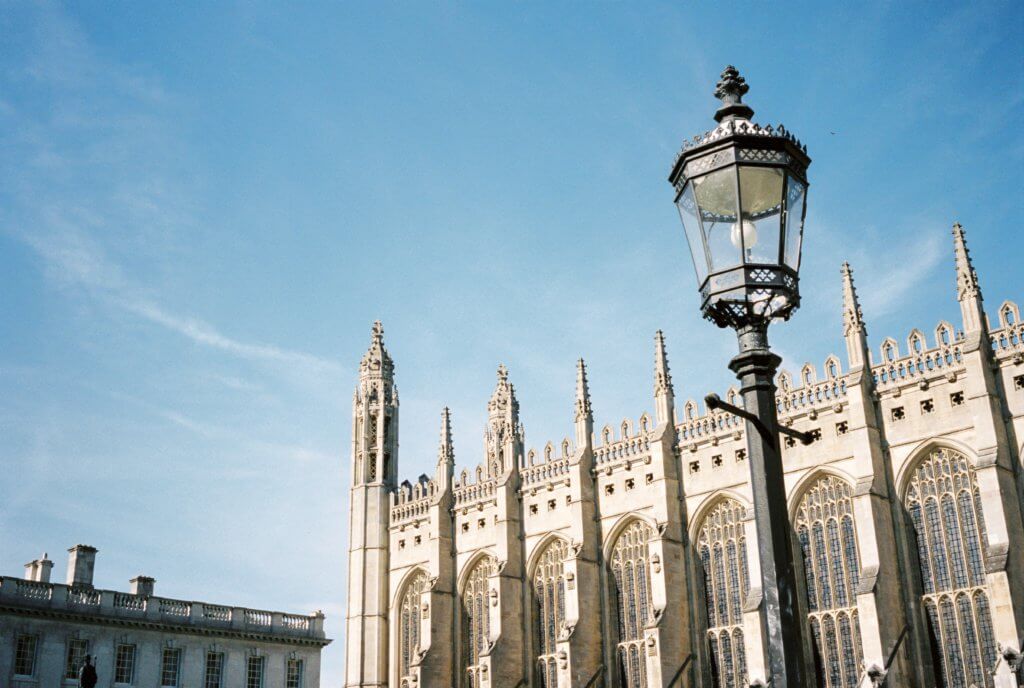
The Refugee Scholarship Campaign helps people from areas of conflict or instability get the right to pursue the education they deserve. Source: Jacqui Cho
What advice do you have for students who are planning to enrol in the same course as you did?
I think university years are really the time to try new things and meet and learn from like-minded people. Academic coursework is important, but taking the time to invest in friendships and relationships will have you pleasantly surprised at how much you can learn! Seek advice from lecturers and alumni, I’ve found them to be a well of wisdom and inspiration.




